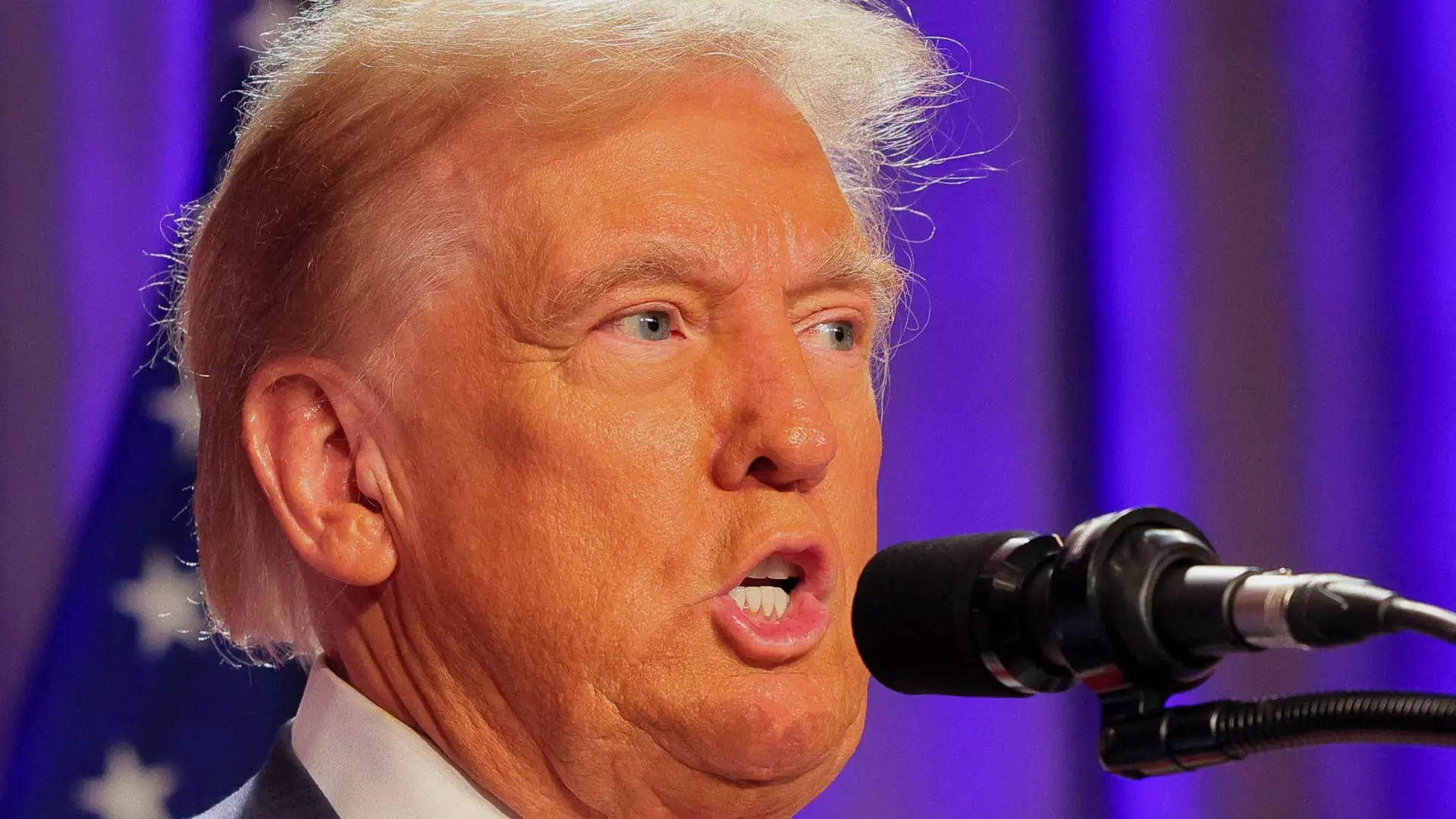In a significant turn of events, the incoming U.S. president, Donald Trump, has engaged in a detailed dialogue regarding the future of foreign aid, particularly to Ukraine, amid ongoing geopolitical tensions. This analysis explores Trump’s recent statements during his exclusive interview on NBC’s “Meet the Press” and considers their implications for American foreign policy, NATO’s strategic importance, and international relations.
In the interview, Trump indicated a notable shift in the trajectory of U.S. military support for Ukraine, hinting that assistance may diminish under his administration. He remarked, “We’re in for $350 billion, and Europe is in for $100 billion. Why isn’t Europe in for the same as us?” This statement reflects a longstanding complaint from Trump regarding European nations’ lack of financial commitment to military aid, particularly in a conflict deemed vital to European security.
Trump’s perspective comes on the heels of a recent announcement by U.S. Defense Secretary Lloyd Austin regarding a substantial aid package—the latest in a series that totals over $62 billion since the onset of the conflict in February 2022. Trump’s framing of the situation suggests a transactional view of international alliances, emphasizing a perceived imbalance in contributions between the U.S. and European NATO allies.
Furthermore, Trump has characterized Ukrainian President Volodymyr Zelenskyy as an exceptionally adept diplomat, suggesting that Zelenskyy’s appeal rather than the genuine needs of the nation has secured aid. Such comments might reflect Trump’s broader skepticism towards foreign aid and contingency of the U.S.’s ongoing support on European nations stepping up their financial commitments.
Trump’s interview pointedly revived concerns regarding NATO’s obligations. He reiterated his stance that NATO members must “pay their bills,” reinforcing a commonly expressed concern that the United States shoulders an unfair portion of the alliance’s financial responsibilities. “Europe is in for a fraction, and war with Russia is more important for Europe than it is for us,” Trump asserted, illustrating his perception of a geographical and strategic disconnect between U.S. and European interests.
This approach raises fundamental questions about the future of NATO, whose raison d’être has been to create a united front against adversarial powers. Trump’s willingness to reassess U.S. involvement in NATO based on member states’ financial commitments could have profound implications for transatlantic relations and the collective security framework established post-World War II.
During the interview, Trump also addressed his communication with Russian President Vladimir Putin, neither confirming nor denying having spoken recently since his election victory. This ambiguous response could signal a potentially recalibrated approach to U.S.-Russia relations. Notably, Trump’s emphasis on nurturing relationships with global leaders, including his confidence in negotiating peace between Russia and Ukraine, presents a complex tableau of U.S. diplomacy.
Following his recent conversation with Zelenskyy in Paris, Trump called for a ceasefire and negotiations, stating that the conflict is one that “should never have started.” This stance positions Trump as a proponent of immediate resolution rather than prolonged military engagement, which could appeal to voters weary of international conflicts.
Moreover, Trump’s assertions about the role of China—particularly with his remarks regarding President Xi Jinping’s influence—signal an understanding that U.S. diplomacy must innovate to address multifaceted global challenges. His vision appears to emphasize leveraging international networks to facilitate discussions around conflicts, including the contentious Taiwan issue, although he refrains from committing to specific military interventions.
Trump’s commentary on the changing dynamics in Syria further illustrates his broader perspective on foreign military engagements. With recent developments signaling the potential collapse of Bashar al-Assad’s regime and the waning interest of Russia, Trump proposed that Russia’s investment in Syria had diminished because of their focus on Ukraine.
As the landscape of international politics continues to evolve, Trump’s foreign policy trajectory paints a picture of America prioritizing a more circumspect and financially accountable approach to global alliances. However, this realignment raises pressing questions: What are the implications for countries reliant on U.S. support? How will NATO adapt to this new paradigm, particularly in the face of a resurgent Russia?
While Trump’s foreign policy appraises relationships through a prism of financial commitments and perceived benefits, the potential reconfiguration of alliances could redefine global power structures with lasting effects. The coming administration’s decisions on aid and diplomacy could play a pivotal role in shaping not only American interests but also the broader international order in the years to come.

